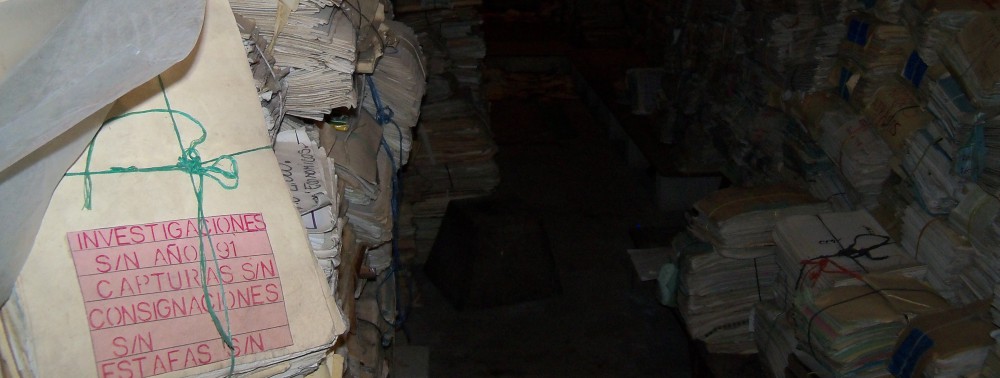*The August 2019 Newsletter of the ICA Human Rights Working Group is available online. This edition is particularly rich, and includes many human rights related news items and announcements from around the globe.
Here is an excerpt from Trudy Huskamp Peterson’s commentary:
“Archivists have thought a great deal about coping with disasters, such as floods and hurricanes that result in (usually) temporary displacement. And archivists have given some thought to disaster preparedness, too. But inexorable climate change requires a longer strategy. Archives of all kinds will have to assess the risk, decide how to mitigate that risk, and take action, which may take years to accomplish. Does the archives move? Does it stay in place but send security copies to another location, either in the country or outside? Does it need evacuation plans? Will building changes, like a seawall, be enough? “
More at: https://www.ica.org/en/hrwg-newsletter-august-2019
* Documentary Heritage News, September 19, 2019, http://documentary-heritage-news.blogspot.com/
* The Journal of Contemporary Archival Studies (JCAS) is excited to announce that its research article “Developing a Typology of Human Rights Records” by Noah Geraci and Michelle Caswell, both of the University of California, has been translated into Portuguese. The translation appears in volume 12, number 3 of the Brazilian information science journal Revista Ibero-Americana de Ciência da Informação (RICI).
Download the original article published in JCAS (English): elischolar.library.yale.edu/jcas/vol3/iss1/1
Download the translated article published in RICI (Portuguese): periodicos.unb.br/index.php/RICI/article/view/24467
* Please check out the wonderful comprehensive international archives bibliography published by the Archivschule Marburg, Germany. It does have an English language search mask and includes many English language publications:
*The Feminist Library MONAliesA in Leipzig publishes guidelines for the digitization of movement archives:
The brochure is available online: online (in German).
Upcoming events:
World Digital Preservation Day will be on November 7, 2019. The Digital Preservation Coalition (DPC) invites all data creators, curators and consumers from around the world to contribute and prepare to share stories of their own ‘digital preservation day!’
Survey to identify hosting institutions for archives/records at risk by Swiss Peace . For more information contact Swiss Peace: http://archivesproject.swisspeace.ch/

 * Celebrate International Archives Week June 3-9, 2019, #IAW2019,
* Celebrate International Archives Week June 3-9, 2019, #IAW2019,